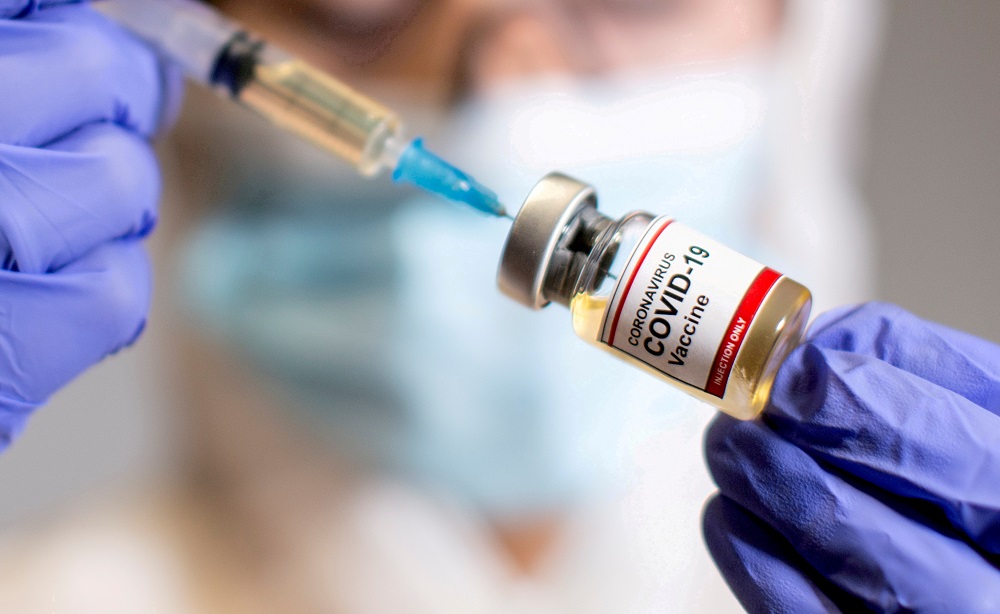KUALA LUMPUR, Jan 15 ― The Health Ministry today said that the National Pharmaceutical Regulatory Agency (NPRA) has not detected any “safety alerts” proving the adverse effects of the Covid-19 vaccine, after several medical practitioners raised concern over certain types of vaccines recently.
It added that it keeps a constant watch for severe side effects after vaccinations, using what it called the Adverse Event Following Immunisation (AEFI) reporting format.
In a statement, the ministry explained that the NPRA’s reporting format would signal health professionals to any potential side effects or concerns for the safety of the vaccine, and that the government is fully committed to its continuous monitoring of the ongoing vaccination programme.
This comes after a group of doctors released a letter addressed to the prime minister of Malaysia and the Health Ministry on the risk of young men contracting myocarditis as well as pericarditis from Covid-19 vaccinations.
“Recently, concerns about cases of myocarditis and pericarditis related to vaccines, especially the Covid-19 mRNA vaccine for the adolescent population received a lot of public attention.
“However, with over 33 million doses of mRNA-based vaccines regulated in the country, the NPRA has not detected any Safety Alerts proving the adverse effects of the Comirnaty vaccine,” said the ministry.
Myocarditis is an inflammation of the heart muscle, while pericarditis is inflammation of the lining outside the heart.
To support this, the ministry said that a study in Denmark involving 3.5 million recipients of the Comirnaty vaccine issued by Pfizer-BioNtech has reported that the actual risk of myocardial infarction after Covid-19 vaccinations among those aged 12 to 39 is 1.6 per 100,000, while for those aged 12 to 17 years is 1.0 per 100,000.
“Based on the rare risk of myocarditis after vaccination, the study supports the overall benefits of Covid-19 vaccinations to individuals, communities and the globe,” it said.
It added that the Institute of Clinical Research (ICR), National Institutes of Health (NIH) and the Health Ministry also conducted a Malaysian vaccine safety study known as Case-Based Monitoring of Adverse Events Following Covid-19 Vaccination (SAFECOVAC, NMRR-21-822-59745).
The study analysed a total of 433,674 admissions to 216 public and private hospitals from February to September 2021, and found that 25 myocarditis cases were confirmed within 21 days of receiving the Covid-19 vaccine.
Of those, 14 cases of myocarditis were reported to be related to Comirnaty, nine related to CoronaVac, and two related to Oxford-AstraZeneca.
“This SAFECOVAC study found the actual rate of myocarditis incidence for every million doses given was 0.9 for comirnaty vaccine recipients, 0.5 for CoronaVac and 0.7 for the Oxford-AstraZeneca vaccine.
“Among those under the age of 30, the actual rate of myocarditis was 0.87 per million doses given for BNT162b2 and 0.49 for CoronaVac. Whereas, for individuals aged 30 years and above, the actual rate of myocarditis is 1.0 per million doses for Comirnaty and 0.6 for CoronaVac,” said the ministry.
It said based on the results of SAFECOVAC, data from NRPA and real-world data systems, show that incidence of myocardial infarction after receiving Covid-19 vaccine are very rare as compared to getting it from a Covid-19 infection.
“Furthermore, most of the reported cases of myocarditis are mild, and limited to individuals and are immediately acted upon,” it said.
Recently, a group of 113 specialists and GPs called for Putrajaya to review its continued push for the public to get their jabs.
They have written an open letter to the health ministry and the National Security Council (MKN) to voice concerns highlighted by researchers from Oxford University, who claimed there is a “causal relationship” between mRNA vaccines and myocarditis as well as pericarditis.



















